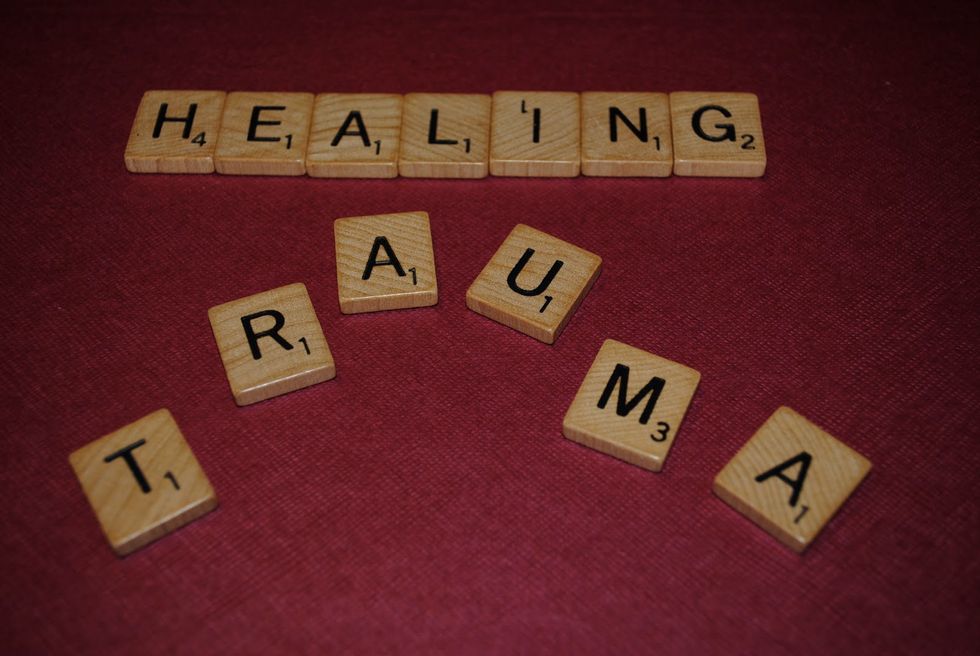It's 5 AM. You just woke up after an exhausting string of nightmares, but you don't need to be up until 9. You lay there for a few more minutes, feeling frozen, until you finally muster up the ability to get up. Throughout the day the disturbing images that your mind has conjured sit and wait to pop back up whenever you have a slight reminder - odds are, you're at work by now and skipped breakfast. You just want to focus at work. You don't want to think about that, not right now - not ever, really, but right now is particularly inconvenient. Your coworkers start to notice that you don't seem right, and either avoid you or ask questions. Or they get angry because you can't seem to focus. And you don't know if you want to talk about it or not.
Do you want to talk about it? Should you talk about it? And to who? Questions race through your head.
You get off work, and still you don't want food - you go home and feel as though time is stopped. Every so often, you feel overwhelmed, and you can't put your finger on why. Your friend - or even significant other - texts you.
You're notably quiet.
You feel lost. You're saying nothing, but everything at the same time.
All of these little deviations in behavior are just little signs that trauma is speaking. It says nothing and says everything at the same time, puzzling both the person afflicted and the people around him/her. And that's what we're here to talk about.
We're here to talk about the obvious discomfort you see in people when you're notably less talkative. We're here to talk about the deafeningly-loud silence when a survivor admits they've had a bad day. The looks, the silence, the blatant avoidance - it speaks as loud as their experiences.
These situations are real. These people are real. That is someone's day, and you might not even know it.
You're at work, too, and your day is going just fine. Maybe you don't even notice how that person is acting. You're thinking about your plans for later in the day, and why is that your problem, anyway? This just happens with said friend or co worker. No biggie... right?
Make note, though: psychologically, trauma is a powerful thing - it can alter your brain chemistry and enlarge your amygdala. This, obviously, can cause deviations in behavior, permanently. It can also cause the more obvious ones. It would be hard for everything to, literally, go back to normal - not as if you're permanently thinking about it, but more like, say, a heightened state of anxiety. From here, it marches forward.
But do you see it?
















